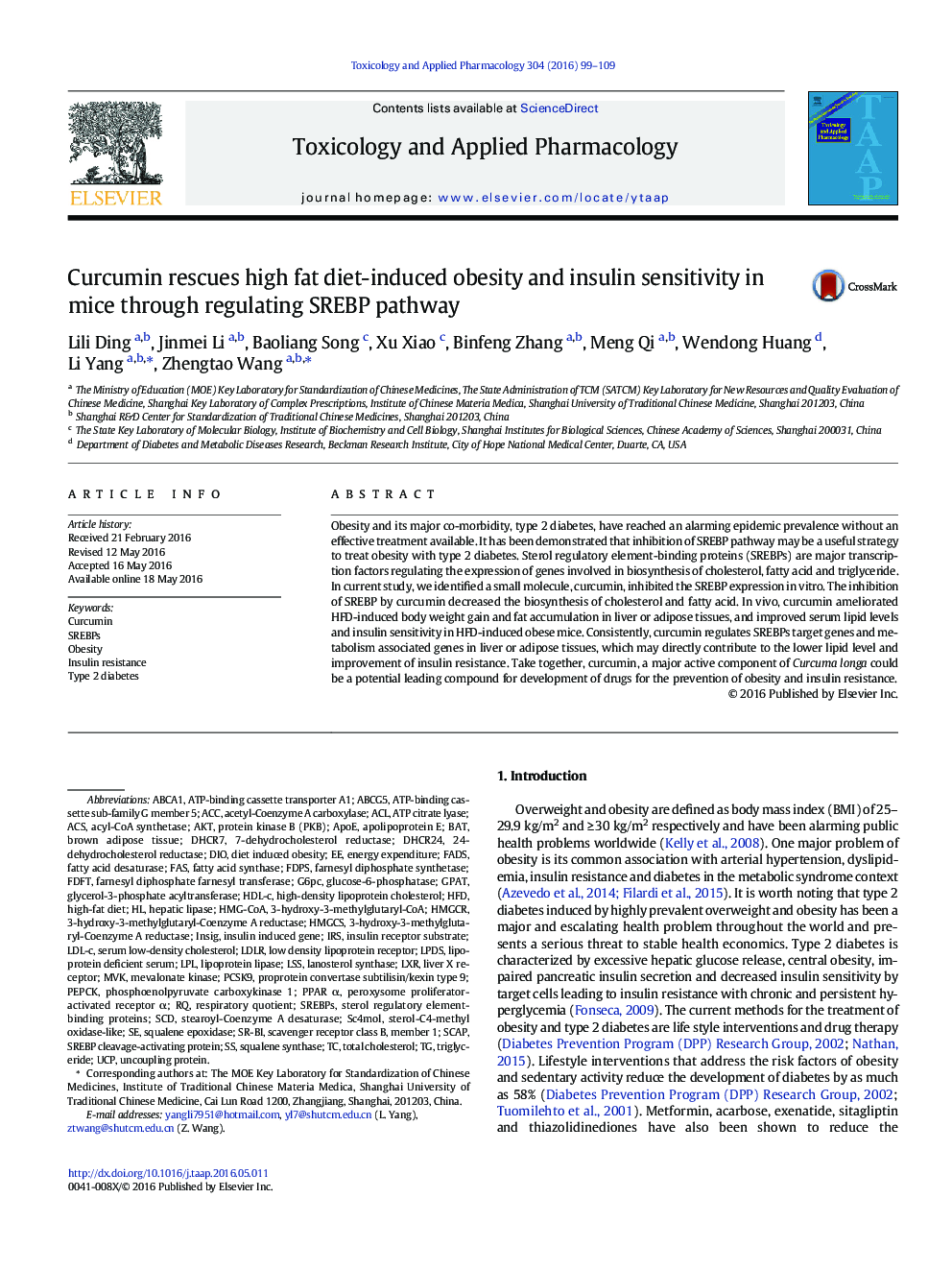| Article ID | Journal | Published Year | Pages | File Type |
|---|---|---|---|---|
| 2568029 | Toxicology and Applied Pharmacology | 2016 | 11 Pages |
•Curcumin decreases biosynthesis of cholesterol and fatty acid in vitro.•Curcumin as a SREBP inhibitor ameliorates HFD-induced obesity.•Curcumin as a SREBP inhibitor improves insulin resistance.
Obesity and its major co-morbidity, type 2 diabetes, have reached an alarming epidemic prevalence without an effective treatment available. It has been demonstrated that inhibition of SREBP pathway may be a useful strategy to treat obesity with type 2 diabetes. Sterol regulatory element-binding proteins (SREBPs) are major transcription factors regulating the expression of genes involved in biosynthesis of cholesterol, fatty acid and triglyceride. In current study, we identified a small molecule, curcumin, inhibited the SREBP expression in vitro. The inhibition of SREBP by curcumin decreased the biosynthesis of cholesterol and fatty acid. In vivo, curcumin ameliorated HFD-induced body weight gain and fat accumulation in liver or adipose tissues, and improved serum lipid levels and insulin sensitivity in HFD-induced obese mice. Consistently, curcumin regulates SREBPs target genes and metabolism associated genes in liver or adipose tissues, which may directly contribute to the lower lipid level and improvement of insulin resistance. Take together, curcumin, a major active component of Curcuma longa could be a potential leading compound for development of drugs for the prevention of obesity and insulin resistance.
